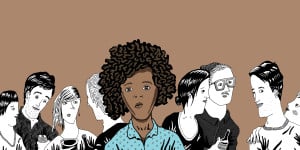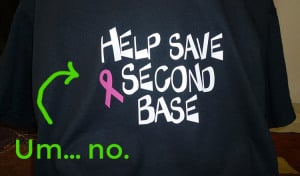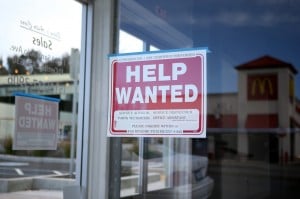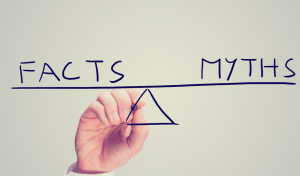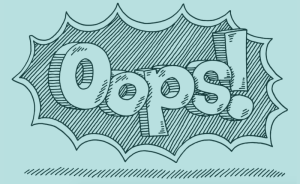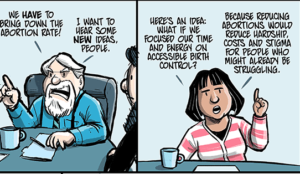“I just don’t see it,” my friend protested. “How do I have ‘cisgender’ privilege? I’m just normal. How is being normal a privilege?”
What my friend didn’t realize in that moment was that seeing himself as “normal” – while seeing me, a transgender person, as “the other” – is exactly where privilege begins.
When one group of people are treated as the “norm,” in which all of their experiences and perspectives are neutral or even desirable, while another group is seen as an “outsider,” it creates a social hierarchy.
And this hierarchy, like it or not, offers unearned advantages to some (privileges) while it disadvantages the “other” (marginalization).
We live in a society which deems transgender people (those who identify as a gender other than that which they were assigned at birth) as being a type of “other,” which results in incredibly unjust obstacles.
But because cisgender people (those who identify with the gender they were assigned at birth) do not encounter these obstacles, or do so at a much lower frequency, they may not realize that they have some advantages as they move through the world.
The subtle (and sometimes, very explicit) advantages that cisgender people may experience in a society that does not “favor” transgender people is what we call “cis privilege.”
“But It’s Not My Fault!”
This doesn’t mean that cisgender people are bad people for having those advantages, or that they should feel ashamed about it.
It just means that, by looking more critically at what those advantages look like, we can start to understand how the system works and who it leaves behind.
This is why it’s very important to see not just who is marginalized, but also who is benefitting from that hierarchy as well.
This is especially important because these hierarchies create something called “oppression.” This means that it’s not just individuals disliking that group – which we would call prejudice – but cultural, social, and political institutions that actively harm that group on a systemic level.
When you say that privilege isn’t really your fault, you aren’t entirely wrong – because systemic oppression goes much deeper than the individuals who are a part of that system.
However, if we can look at how power and privilege operate in the real world, we can then better understand the inequities that come from oppression.
In doing so, we can see how our individual attitudes or behaviors either uphold or challenge systems of oppression.
As in the case of my friend, when he started to think more critically about those unearned advantages, we reached a common ground.
Affirming my struggles and recognizing that he does not experience them to the same extent replaced his defensiveness with compassion, which he could then use to make a real difference as an ally.
Because while having privilege in and of itself was not his choice, he could decide what to do with his privilege once he realized that he had it. And as we all learn about the ways we are advantaged and disadvantaged, we, too, can make that choice.
Privilege Isn’t One-Dimensional, Though…
It’s not as simple as saying that all cisgender people are privileged the same way, or that all transgender people are identically oppressed, though.
Because our identities – and by extension, our privileges – aren’t one-dimensional!
For example, while it is true that I am transgender and experience disadvantages as a result, I am also a white person. So while I do experience struggles as a transgender person, my whiteness affords me racial privilege.
It’s also true that a transgender person of color, impacted by both racism and transphobia, will have a distinctly different experience of their oppression.
Similarly, if you are cisgender, you may experience many advantages as cis. But you may also be poor or disabled, for example, which means your experience of privilege may be different from another cis person’s experiences.
It’s also true that a transgender man, for example, may actually experience a great deal of privilege on a day-to-day basis by virtue of his masculinity, compared to, say, a cisgender woman, who experiences misogyny and sexism. He may still experience disadvantages by virtue of his transness, but those disadvantages do not negate his male privilege.
Not to mention, some transgender people do not experience dysphoria or desire surgery, which means their experiences of marginalization will be different from someone who does.
This is what we call “intersectionality,” meaning our experiences of power and privilege are impacted by different aspects of our identities and how they intersect with one another.
In a nutshell: The many facets of who we are will impact our lived experience of oppression.
So while this is a list about “cisgender privilege,” it’s important to keep in mind that not all transgender people experience oppression the same way, and not all cisgender people experience privilege the same way.
I Still Feel Uncomfortable, Though – Is That Bad?
When I started thinking about my own privileges, I felt guilty, sad, uncomfortable, and intimidated.
It felt like I would never know enough and could never do enough to make an impact. It was easy to feel defeated and afraid.
If you’re feeling any of those emotions, I want to validate them: Injustice on such a large scale can be hard to wrap your head around, and the conversations about them can make us feel like we’re inherently wrong or bad people.
Self-blame and self-hatred is not actually what checking our privilege is about, though.
Instead, think about privilege as an opportunity to build on your compassion and understanding. See it as an opportunity to be empowered to make a difference, however small it might be.
Think of this as an ongoing practice – a journey of learning and unlearning – rather than a singular destination of Ultimate Allyship. Understanding systemic privilege isn’t a skill to master but, instead, a muscle to flex.
All it takes is an open heart and a willingness to tune into the conversation, and to hold yourself accountable for the impact your actions and behaviors have as a person who holds privilege.
So take it one step at a time, one foot in front of the other.
If you’re reading this article, you’ve already taken the first step. Now that you know what privilege is about, let’s take a look at how privilege manifests in the real world.
Cis Privilege in Education
1. You are less likely to face harassment or violence for using the bathroom or locker room that aligns with your gender.
2. You are less likely to be asked to wear a school uniform that does not align with your gender.
3. You are less likely to be bullied by students and faculty alike on the basis of your gender identity or expression.
4. You are less likely to face resistance when asking to be recognized by your chosen name.
5. You are less likely to face opposition when asking that your chosen name be listed in programs, certificates, class rosters, and other places where your name might appear.
6. You are less likely to be barred from attending gender-specific events, clubs, or schools, even when those spaces are intended for people of your gender.
7. You don’t have to worry that a health center on your campus will not be able to provide you with competent care on the basis of your gender identity or expression.
8. The curriculum at your school is more likely to center the experiences and perspectives of people who share your experience of gender.
9. You will not have a teacher, classmate, counselor, or administrator question the authenticity of your gender.
10. You are less likely to drop out of school due to the harassment you face on the basis of gender identity or expression.
11. You won’t be questioned or interrogated about your genitals by others while at school.
12. You will not have your academic performance impacted due to the anguish of gender dysphoria, bullying, and inadequate social support.
13. You are less likely to be misgendered by others while at school.
14. You are less likely to hide your gender identity or expression due to a fear of bullying, suspension, or even expulsion.
15. You are less likely to face pressures to alter your gender expression for the comfort of those around you.
Cis Privilege in the Workplace and Economy
16. You are less likely to experience discrimination in the workplace on the basis of your gender identity or expression.
17. You are less likely to be asked to wear a uniform that does not align with your gender identity or expression.
18. You’re less likely to receive intrusive questions about your body or gender in the workplace.
19. You’re less likely to be fired on the basis of your gender identity or expression.
20. You’re less likely to be misgendered in the workplace.
21. You are less likely to have to hide your gender identity due to a fear of harassment or discrimination.
22. You are less likely to be passed up for a raise or promotion on the basis of your gender identity or expression.
23. When you fill out paperwork for your job, you won’t fear being “outed” due to a discrepancy between your gender identity and your legal gender marker.
24. If you receive tips at your job, you are less likely to be stiffed on the basis of your gender identity or expression.
25. Your competence is less likely to come into question because your gender “goes against nature.”
26. You are less likely to alter your gender expression (or to pretend to be another gender altogether) just to ensure you won’t be discriminated against during an interview.
27. You are less likely to worry that your legal name will confuse potential employers because it does not align with your gender presentation.
28. How you’re treated in the workplace will not be subject to how well you “pass” as your gender.
29. People with your gender identity or expression are more likely to be represented in higher paying positions.
30. You can be fairly sure that your management, coworkers, and customers know the basic etiquette of how to interact with someone of your gender without requiring special training or education.
31. You are less likely to experience homelessness or poverty.
32. You are less likely to be faced with the financial burden of (life-saving) hormone therapy or surgery.
33. You can use your government-issued ID (if you have one) to apply for a job or make a purchase without being accused of using a fake ID.
34. You are less likely to be faced with the financial burden of changing your legal gender marker and name in the court system.
35. You are less likely to endure discrimination in housing, or to be rejected for housing outright because your government-issued ID doesn’t align with your perceived gender.
36. You are more likely to have a financial safety net because your savings did not go towards a major surgery.
Cis Privilege In The Media
37. You are more likely to see characters of your gender identity and experience portrayed in films, books, television, etc.
38. Those characters are likely to be written by people who share your gender identity and experience as well.
39. If they are adapted for film or TV specifically, those characters will be played by someone of your gender identity and experience.
40. Characters of your gender are less likely to be inserted into a plot simply to be sensationalized, exploited, or killed off (transgender people are cast in victim roles over 40% of the time).
41. If someone of your gender is interviewed on television, they are less likely to be interrogated about their genitals, surgeries, or past trauma.
42. People of your gender are more likely to be portrayed as protagonists, heroes, or main love interests rather than secondary or irrelevant characters.
43. Characters of your gender are more likely to be given backstories that depict them as fully human, rather than objects of perversion or deviancy.
44. Almost anyone could name a famous actor of your gender identity or experience.
45. Almost anyone could name a famous writer of your gender identity or experience.
46. People of your gender identity or experience are more likely to be represented at all levels of a particular industry.
47. Stories that resemble your experiences are more likely to be told and represented.
48. Those stories are not considered “niche” interests, but rather, mainstream.
49. Athletes of your gender are less likely to be barred from competing on the basis of their gender identity.
50. Branding and advertising actually depicts people of your gender and markets to them, rather than pretending they don’t exist.
51. You are less likely to be bombarded with headlines and stories about people of your gender being murdered or dying by suicide.
52. You are less likely to be bombarded with headlines and stories that say that people of your gender do not exist or are simply a “trend.”
Cis Privilege in Politics and Law
53. People of your gender identity are elected to public office with some frequency (or at all).
54. If someone of your gender identity, expression, or experience ran for public office, they wouldn’t face scrutiny because of their genitalia or body.
55. A political candidate of your gender would not have to hide their gender identity or experience for fear of not being elected because of it.
56. A political candidate of your gender is much less likely to be labeled “perverse” or “disgusting” on the basis of their gender expression or experience, and have their competency questioned as a result.
57. People of your gender are explicitly included in anti-discrimination laws and ordinances.
58. Politicians are not actively trying to deny you access to housing, bathrooms, or locker rooms on the basis of your gender identity.
59. People of your gender identity or experience have actually been “out” and represented in the House, Senate, and Supreme Court.
60. Your gender is actually listed in the US Census and other legal forms.
61. You were (most likely) not legally forced to take on a gender marker and label that does not accurately reflect your identity.
62. You did not have to move through the court system to have that marker and label changed.
63. You are less likely to be profiled as a sex worker based on your gender expression.
64. If incarcerated, you are at a lower risk for sexual assault and violence (40% of transgender prisoners are sexually abused every year), and will be sent to a prison that houses people of your gender.
65. If incarcerated, you are less likely to be placed in solitary confinement to “protect” you from gender-based violence and harassment.
Cis Privilege in the Medical System
66. You are less likely to need life-saving surgeries that could cost you thousands upon thousands of dollars out of pocket and leave you financially vulnerable.
67. If you needed hormone replacement therapy, you would not have to prove you were competent enough to receive it.
68. You are less likely to fear visiting a doctor or hospital because you can be sure that you won’t be interrogated, misgendered, or harassed on the basis of your gender identity or experience.
69. You will not have to continually correct medical personnel who misgender you because your records identify you as a gender that you are not.
70. You are less likely to be asked invasive, personal questions about your gender identity or body that are not relevant to the care that you are receiving.
71. You are more likely to have a therapist or psychiatrist who understands and supports your gender identity.
72. You are less likely to encounter a situation where a mental health professional denies you care because they don’t “agree” with your gender.
73. You are less likely to encounter a situation in which a medical doctor discourages you from pursuing life-saving medical interventions because they don’t “agree” with your gender.
74. You will not have to visit a psychologist or mental health professional to first prove you are distressed enough to receive necessary medical interventions.
75. You are less likely to have to travel miles upon miles to a special clinic or center just to find competent medical care.
76. You are less likely to have a therapist tell you that they are not knowledgeable enough to treat you.
77. A parent or guardian has likely never subjected you to reparative therapy to “correct” your gender.
78. Your gender identity is not considered a pathology or the result of a disorder.
Cis Privilege in Sex and Relationships
79. You are less likely to be murdered, attacked, or assaulted when your gender identity is revealed to others (or assumed).
80. When you meet someone who you’d like to pursue a relationship with, you do not have to fear what will happen when you disclose your gender identity.
81. Your partner(s) are less likely to be ashamed of being with you just because of your gender identity.
82. Your partner(s) are less likely to feel that they must hide your history from loved ones just because of your gender identity.
83. People are less likely to question or disbelieve the sexual orientation of your partner(s) just because of your gender identity.
84. Sexual encounters are not considered “scandalous” or “dirty secrets” just because of your gender identity.
85. You are less likely to be fetishized just because of your gender identity.
86. There’s no need to consider disclosing your gender identity or intimate details about your body upfront to potential partner(s) for fear of being called a “trap” or an “imposter.”
87. Total strangers are less likely to ask you “how you have sex.”
88. Potential sexual partners already have a realistic expectation of what your genitals will look like and what to call them.
Cis Privilege in Social Norms/Public Spaces
89. As a teen, you were never told that you were “too young” to know your gender.
90. As an adult, you were never told that your gender was “made up” or inauthentic.
91. You can expect that your gender pronouns will be respected without protest.
92. You are less likely to be mindful of how you walk, talk, dress, and behave in public spaces for your gender identity to be recognized by others.
93. You are less likely to be excluded from spaces that are intended for your gender.
94. You can be sure that when you go out, you will be able to find a restroom or locker room that corresponds with your gender identity.
95. You can be sure that, when you access that restroom or locker room, any accusation of not “belonging” there will likely not escalate into violence.
96. You can move through public spaces without being stared at, laughed at, or turned into a spectacle because of your gender presentation/expression.
97. People of your gender identity and experience are not assumed to be pedophiles or harmful for children to be around.
98. You can expect that your name will be respected without invasive questions about what your “real” name is.
99. You can shop for clothing that aligns with your gender expression without fear of being harassed or ridiculed.
100. You can use your government-issued ID without being accused of “lying” or using a fake ID.
101. You can expect that family, guardians, friends, religious communities, and other support systems will not disown you because of your gender identity.
102. The authenticity of your gender is not scrutinized based on the number of surgeries or medical interventions you have pursued.
103. People believe you when you tell them what gender you are.
104. Your gender is not considered “too difficult,” “too confusing,” or “too inconvenient” for those around you.
105. Your gender identity is not considered humorous or the butt of a joke.
106. You can reasonably assume that anyone you talk to will already have a basic understanding of your gender, and you won’t have the emotional labor of educating them.
107. You can use a credit card or government-issued ID without fear that it reveals something private that you do not want others to know.
108. You are more likely to go to a hair salon or clothing store without being pressured into changing your appearance to conform to your assigned gender.
109. You can talk to a stranger without fear that the pitch of your voice will “out” you as transgender and put you in danger.
110. When someone speaks to you, you can be fairly sure that they will use the correct term to address you (ex. ma’am or sir).
111. You can leave your home without the anxiety or anguish of gender dysphoria.
112. You do not have to wear a chest binder, breast forms, packer, or other modifications – some of which are physically uncomfortable – to feel safe in public spaces.
113. You do not have to exaggerate your gender expression (ie appearing hyperfeminine or hypermasculine) to be validated by others in your gender identity.
114. You do not have to deal with the anxiety or anguish of “not passing” as your gender.
115. You live in a society that broadly recognizes your gender at all.
116. You have a gender at all (agender people exist, though their identities are routinely erased).
Cis Privilege in Religion
117. Your gender identity alone is not grounds for excommunicating you from a religious community.
118. Entire religious movements and campaigns have not been founded in an effort to harm or exclude people of your gender identity.
119. Globally-significant religious figures have not compared your community to “nuclear weapons.”
120. You are less likely to enter a place of worship with the fear that you will be asked to leave simply because of your gender identity or expression.
121. People of your gender identity/experience are represented in your religious community and leadership.
122. You can read any religious text and be certain that people of your gender identity and experience are acknowledged and even celebrated.
123. You are less likely to be asked to change your gender expression to participate in religious community.
124. If you are not religious, you are more likely to find secular communities that actively include people of your gender identity and experience.
Cis Privilege in Harassment and Violence
125. You are less likely to be the target of street harassment when compared to your trans/gender non-conforming counterpart (cis women are less likely than trans/GNC women; cis men are less likely than trans/GNC men).
126. You are less likely to be the target of physical violence when compared to your trans/gender non-conforming counterpart.
127. You are less likely to be the victim of a hate crime when compared to your trans/gender non-conforming counterpart.
128. You are less likely to experience police brutality when compared to your trans/gender non-conforming counterpart.
129. You are less likely to experience sexual violence when compared to your trans/gender non-conforming counterpart.
130. If you are murdered, there is no law (ie “trans panic”) that will legally justify your murder.
131. If you are the victim of intimate partner violence, you can be sure that you won’t be rejected from a shelter for people of your gender because of your trans-identity.
132. You are less likely to be groped by a stranger because they were unsure of your “gender.”
So Now What Do I Do?
Now that you’re aware of some of the advantages you may have as a person of cisgender privilege, a great way to further your allyship is to keep learning more. Here are some articles for further reading and action:
- Privilege 101: A Quick and Dirty Guide
- 8 Things That Transgender People Do Not Owe You
- 7 Tired Phrases That Marginalize Trans People – And What to Use Instead
- Is Your Trans Allyship Half-Baked? Here Are 6 Mistakes Trans Allies Are Still Making
- These 7 Assumptions About Non-Binary People May Be Hindering Your Trans Allyship
The blog “Taking Up Too Much Space” also has a Cis Privilege Checklist, which is a great additional resource for cisgender folks who want to unpack their privilege.
At the end of the day, the important thing to remember about allyship and privilege is that this is a learning and unlearning process – which means you aren’t expected to know everything overnight.
Keep reading, reflecting, and looking for ways to be supportive of the transgender and gender nonconforming people in YOUR life! Be open to the conversations happening around these issues, even if – and especially if – they feel scary to consider at first.
Good luck!
[do_widget id=’text-101′]
Sam Dylan Finch is the Editorial Associate for Everyday Feminism. He is queer writer, activist, and educator based in the San Francisco Bay Area. In addition to his work at Everyday Feminism, he is also the founder of Let’s Queer Things Up!, his hella queer and very awesome blog. You can learn more about him here and read his articles here. Follow him on Twitter @samdylanfinch.
Search our 3000+ articles!
Read our articles about:
Our online racial justice training
Used by hundreds of universities, non-profits, and businesses.
Click to learn more







